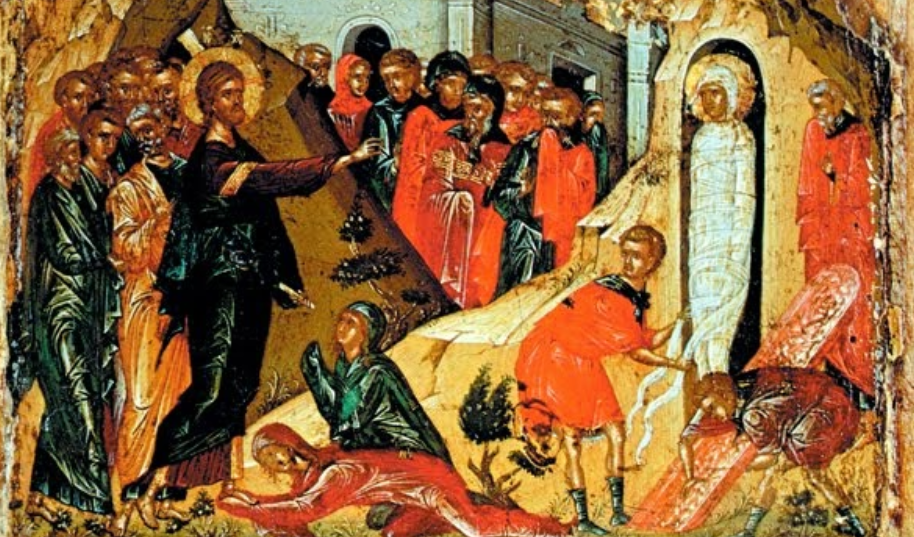The Orthodox Church commemorates today the Raising of Lazarus, who had been entombed for four days. He was the righteous friend of Jesus Christ and the first bishop of Kition.
Lazarus of the Four Days was a friend of Jesus Christ. His sisters, Martha and Mary, accommodated Him many times at their house in Bethany (Luke 10:38-40, John 12:1-3). A few days before the Passion of Jesus Christ, Lazarus fell ill and his sisters informed their teacher, who was then in Galilee, about the state of health of his friend. However, Jesus Christ was late and Lazarus reposed in the Lord.
As soon as he arrived in Bethany, He comforted the sisters of Lazarus. He asked them to visit his tomb together. They explained to Him that it might be too late as he had already been buried four days before. Jesus Christ told them to confess that they still believed in God’s providence and then explained to them that He was the Resurrection and the Life.
When Jesus went to the tomb he shed a tear for his friend and, then, ordered the people around him to remove the tombstone. Everybody knew that Jesus and Lazarus were close friends. Jesus Christ lifted up his eyes to heaven, thanked God and Father, and cried with a loud voice, “Lazarus, come forth.” He called on Lazarus’ soul to return to his dead body. Even though he had reposed in the Lord four days before, he came out of his tomb wrapped in his burial shrouds.
It is said that Lazarus was 30 years old when he firstly reposed in the Lord and then he lived for another thirty years after he was raised. He passed away in Cyprus in 63 AD, and his tomb is now in the city of Kition. On the tombstone, it is written “Lazarus of the Four Days, Friend of Christ.” However, his relics were translated from Cyprus to Constantinople In 890 AD, under the Emperor Leo VI of Byzantium, who composed the Troparion, which is sung during the Vespers Service on Lazarus Saturday.
Lazarus laughed only once after his raising; when he saw someone stealing a clay pot in Kition. He said, “The clay steals the clay.”
The Rising of Lazarus intensified the hatred of the Jews, who, as soon as they learned of it, sought to kill Lazarus and Christ. The Rising of Lazarus of the Four-Days was a foreshadowing of the Resurrection of Christ and a prefiguring of the General Resurrection.
Source: Church of Cyprus
